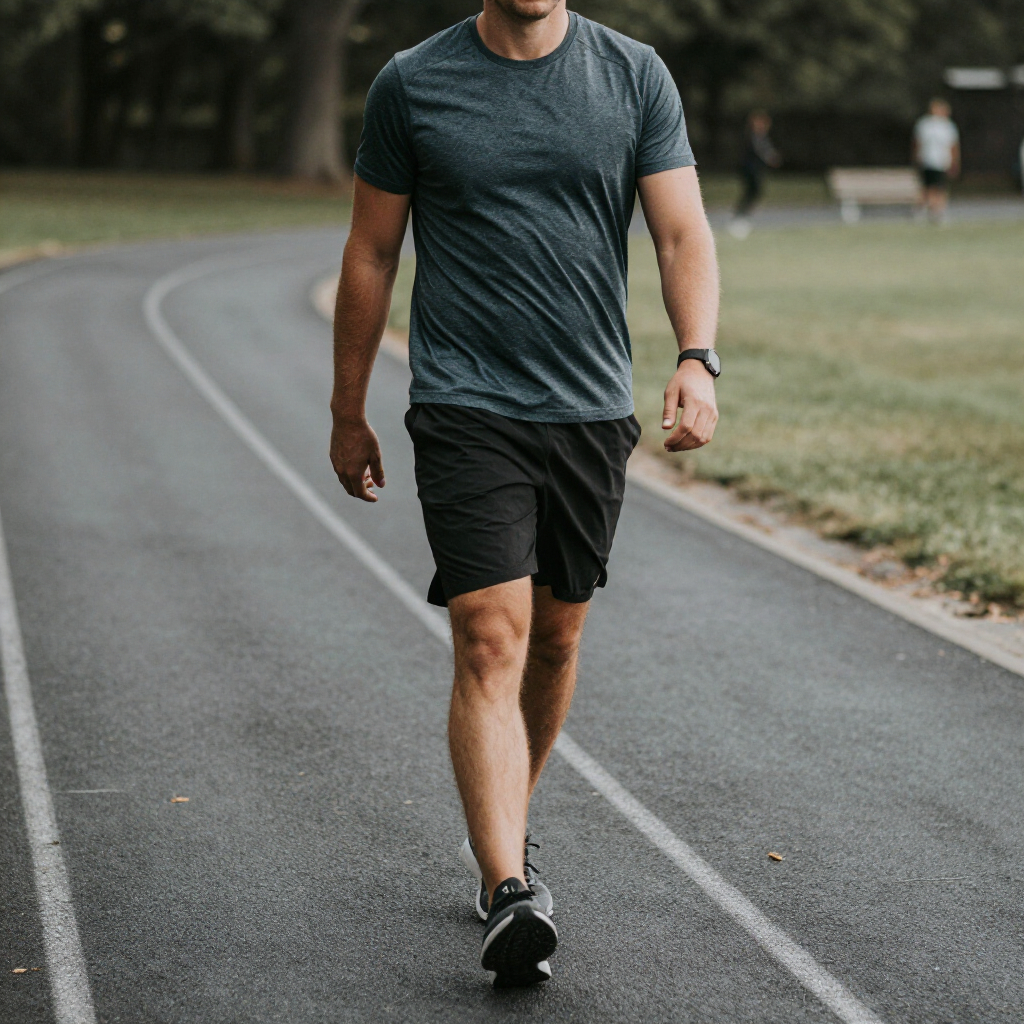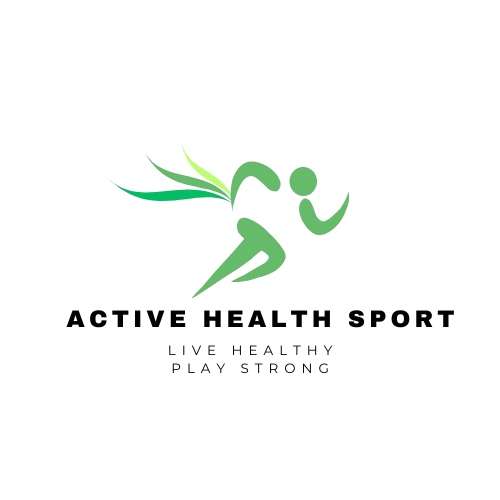Boost Your Mental Wellness with the Power of Physical Activity
Unlock the Mental Health Benefits of Sports
Engaging in sports and physical activities isn’t just about building physical strength or achieving fitness goals; it’s also a proven way to enhance mental well-being.
The connection between physical activity and mental health has been extensively studied, with findings showing that regular participation in sports can help reduce anxiety, improve focus, boost mood, and foster resilience.
In addition to the many physical health benefits that sports offer, there are remarkable psychological advantages that can significantly improve mental health. One of the key benefits is the reduction in symptoms of anxiety and depression.
Studies have consistently shown that regular physical activity can trigger the release of endorphins, often referred to as “feel-good” hormones, which help combat the effects of stress and lift one’s mood. For individuals struggling with mental health conditions, sports serve as a powerful, natural remedy, improving their emotional state over time.
Consequently, sports promote better sleep patterns, which are vital for maintaining optimal mental health. Physical exertion during activities like running, swimming, or cycling helps tire the body in a healthy way, making it easier to fall asleep at night and ensuring more restful sleep.
A good night’s sleep is directly correlated with reduced stress and improved cognitive function, both of which are crucial for mental clarity and emotional balance.
The social aspect of sports cannot be underestimated either. Whether through team-based games like soccer or group fitness classes, sports encourage communication, teamwork, and interaction with others.
These social connections can help alleviate feelings of loneliness, which is especially beneficial for individuals dealing with isolation or low self-esteem. The camaraderie that develops in sports settings fosters a sense of belonging and can improve one’s overall outlook on life.
Engaging in sports can also bolster resilience and self-confidence. Overcoming challenges and achieving personal goals in sports, such as running a race or hitting a target, can provide a sense of accomplishment and build mental toughness.
These qualities translate into everyday life, helping individuals navigate stressors with greater ease and confidence. Through consistent participation in physical activities, one can foster both a healthy body and mind, leading to overall improved quality of life.
Reducing Stress and Anxiety
One of the most immediate benefits of physical activity is its ability to reduce stress and anxiety. Exercise releases endorphins, your brain’s “feel-good” chemicals, that naturally elevate mood and create a sense of happiness.
- The Science Behind It: Physical activity lowers cortisol levels (the body’s stress hormone) and helps balance neurotransmitters, which play a role in managing anxiety.
- Mindful Movement: Sports like yoga, swimming, or martial arts encourage a meditative state by combining physical effort with focus, creating a calming effect on the mind.
Engaging in sports not only distracts from negative thoughts but also provides a structured outlet to channel pent-up energy and emotions, reducing overall stress levels.

Enhancing Mood and Combating Depression
Physical activities have been shown to alleviate symptoms of depression by promoting the release of serotonin and dopamine, neurotransmitters linked to mood regulation.
- Social Interaction: Team sports like soccer, basketball, or volleyball foster a sense of camaraderie and belonging, combating feelings of loneliness or isolation.
- Improved Self-Esteem: Achieving fitness milestones, mastering new skills, or simply participating in a supportive environment can enhance self-confidence.
According to research, regular participation in sports can lead to sustained mood improvements, often rivaling the effects of traditional therapies.
Improving Focus and Cognitive Function
Engaging in sports isn’t just good for the body, it sharpens the mind too. Physical activity boosts blood flow to the brain, enhancing cognitive functions such as memory, learning, and problem-solving.
- Mental Sharpness: Activities that require strategic thinking or quick decision-making, like tennis or chess boxing, stimulate brain activity and improve focus.
- Prevention of Cognitive Decline: Regular exercise has been linked to a lower risk of neurodegenerative diseases such as Alzheimer’s, proving its long-term cognitive benefits.
For students and professionals, incorporating sports into their routine can enhance productivity and academic performance.
Promoting Better Sleep
Quality sleep is crucial for mental health, and sports can significantly improve sleep patterns. Engaging in physical activity helps regulate your body’s circadian rhythm, making it easier to fall and stay asleep.
- Relaxation Effect: Exercise reduces anxiety and promotes relaxation, making it easier to unwind after a long day.
- Energy Balance: Activities like running or cycling use up excess energy, ensuring that your body feels naturally tired by bedtime.
Better sleep leads to improved mood, better concentration, and a stronger ability to handle stress.
Building Emotional Resilience
Sports help individuals develop emotional resilience by teaching them to cope with challenges, failures, and setbacks. Whether it’s bouncing back from a tough loss or striving to improve after a mistake, sports foster a growth mindset.
- Stress Tolerance: Competitive sports encourage athletes to perform under pressure, building resilience that translates into everyday life.
- Empathy and Teamwork: Team sports instill values like cooperation, empathy, and understanding, all of which contribute to emotional well-being.
The lessons learned on the field or court can help individuals navigate personal and professional challenges more effectively.
Strengthening Social Connections
Human beings are inherently social creatures, and sports provide an excellent avenue for forming and strengthening relationships.
- Building Friendships: Participating in team sports or group activities introduces you to like-minded individuals and fosters lifelong friendships.
- Community Engagement: Sports often bring communities together, creating a sense of belonging and shared purpose.
The social benefits of sports not only improve mental health but also create a support system that enhances overall quality of life.

Fostering a Sense of Accomplishment
The sense of achievement derived from participating in sports can significantly boost mental health. Whether it’s completing a challenging hike, winning a game, or simply improving personal fitness, sports provide measurable milestones.
- Intrinsic Motivation: Personal progress in sports fosters a sense of pride and intrinsic motivation, which can be carried over into other areas of life.
- Goal Setting: Setting and achieving sports-related goals teaches discipline and focus, building a positive mindset over time.
The Synergy Between Physical and Mental Health
Physical and mental health are deeply interconnected, and sports serve as a bridge between the two. By engaging in regular physical activity, you can experience a ripple effect of benefits, enhanced physical fitness leads to improved mental clarity, emotional stability, and a more positive outlook on life.
Incorporating sports into your routine doesn’t have to be overwhelming. Start with activities you enjoy, whether it’s a casual game of basketball, a morning jog, or a dance class. What matters most is consistency and finding joy in the process.
Case Studies | Real Stories of Mental Health Transformation Through Sports & Physical Activity
At Active Health Sport, we’ve witnessed how sports and physical activities can create life-changing improvements in mental health. Here are three inspiring real-life stories from individuals who transformed their mental health through movement.
🏃♀️ Natasha Alias – Overcoming Anxiety Through Running
For years, Natasha Alias, a 32-year-old software developer, struggled with crippling anxiety. Long hours at her desk and a lack of physical movement left her feeling constantly on edge, battling sleepless nights and overwhelming stress. Despite trying therapy and meditation, she still felt trapped in her own thoughts.
At the recommendation of a friend, Natasha started running, just a few minutes at a time. What started as a casual jog turned into a daily 30-minute escape from stress. The rhythmic motion, fresh air, and release of endorphins worked wonders. Over time, she noticed:
✅ Lower anxiety levels throughout the day
✅ Better sleep quality and reduced nighttime restlessness
✅ Improved concentration and productivity at work
“I used to feel trapped in my own mind, but running gave me clarity and peace. Now, it’s my daily reset button.” – Natasha Alias
🏀 Aaliva Thomson – Battling Depression with Team Sports
Aaliva Thomson, a 26-year-old teacher, found herself battling depression after a tough breakup and career struggles. She became withdrawn, lost motivation, and found herself isolated from friends and family.
One day, an old friend invited her to join a local basketball league. Reluctant at first, Aaliva forced herself to show up, and that single decision changed everything. Being part of a team sport helped her:
🏀 Rebuild social connections and combat loneliness
🏀 Feel a renewed sense of purpose and motivation
🏀 Experience the dopamine boost that came with competition and achievement
Over the months, Aaliva regained her confidence, energy, and excitement for life. The camaraderie and structure of sports helped her break out of the darkness of depression.
“Basketball didn’t just get me active, it gave me a reason to get out of bed, to connect with others, and to feel strong again.” – Aaliva Thomson
🚴 Donald Calliar – Managing PTSD with Cycling
At 47 years old, Donald Calliar, a former firefighter, had been dealing with post-traumatic stress disorder (PTSD) for years. The memories of traumatic rescue operations haunted him, leading to flashbacks, sleep disturbances, and emotional distress.
Traditional therapy helped, but nothing gave him the sense of control and peace that cycling did. He started riding his bike for short distances, eventually increasing to long solo rides on open roads. The feeling of freedom and movement helped him:
🚴 Reduce stress hormones and calm his mind
🚴 Process emotions more effectively while riding
🚴 Replace negative thoughts with focus and mindfulness
Now, cycling is his form of meditation. It helps him process difficult emotions and keeps him mentally strong and resilient.
“Cycling saved me. When I’m on my bike, I feel free, clear-headed, and at peace. It’s the therapy I never knew I needed.” – Donald Calliar
Start Your Mental Wellness Journey Today!
These stories prove that sports and physical activities are a powerful tool for mental well-being. Whether it’s running, team sports, or cycling, movement helps:
✅ Reduce anxiety, depression, and stress
✅ Boost mood, confidence, and self-esteem
✅ Improve sleep, focus, and resilience
No matter where you are in your mental health journey, there’s a sport or activity that can help you heal and thrive.
Closing Thoughts
Sports and physical activities are powerful tools for improving mental health. From reducing stress and anxiety to enhancing focus and building emotional resilience, their benefits extend far beyond physical fitness. By incorporating sports into your daily life, you can boost your mood, sharpen your mind, and create a stronger sense of connection with yourself and others.
Take the first step toward better mental health today by finding a sport or activity you love. Remember, the journey to wellness starts with just one move, let it be an active one!
What sport or activity will you try this week? Share your experiences in the comments below and explore more insights on mental and physical health at Active Health Sport!
You might also like…
- Why Mobility Matters More Than Muscle for CrossFit Progress
 In CrossFit culture, strength numbers often steal the spotlight: heavier deadlifts, faster WOD times, and bigger PRs. While muscle and power are essential, they are not the limiting factor… Read more: Why Mobility Matters More Than Muscle for CrossFit Progress
In CrossFit culture, strength numbers often steal the spotlight: heavier deadlifts, faster WOD times, and bigger PRs. While muscle and power are essential, they are not the limiting factor… Read more: Why Mobility Matters More Than Muscle for CrossFit Progress - Zone-2 Walking for CrossFit Athletes Explained
 In CrossFit, conditioning is often associated with intense, fast-paced WODs, high heart rates, and breathless finishes. While this intensity builds power and short-term fitness, it does not fully support… Read more: Zone-2 Walking for CrossFit Athletes Explained
In CrossFit, conditioning is often associated with intense, fast-paced WODs, high heart rates, and breathless finishes. While this intensity builds power and short-term fitness, it does not fully support… Read more: Zone-2 Walking for CrossFit Athletes Explained - How Low-Intensity Walking Restores the Nervous System
 CrossFit is designed to test physical limits. Heavy lifts, fast-paced metabolic conditioning, and complex gymnastic movements demand not only muscular strength but also significant nervous system output. While most… Read more: How Low-Intensity Walking Restores the Nervous System
CrossFit is designed to test physical limits. Heavy lifts, fast-paced metabolic conditioning, and complex gymnastic movements demand not only muscular strength but also significant nervous system output. While most… Read more: How Low-Intensity Walking Restores the Nervous System

Kait Amazra is the founder and lead writer of Active Health Sport. With over 25 years of experience in health, fitness, and wellness education, Kait combines professional expertise with a passion for helping people live stronger, healthier, and more balanced lives.
As a licensed health and fitness professional, Kait has worked alongside industry experts to deliver evidence-based insights on physical activity, nutrition, recovery, and holistic well-being. Through Active Health Sport, Kait’s mission is to make trusted, practical, and science-backed health information accessible to everyone, from beginners building new habits to athletes seeking peak performance.


Thanks for sharing. I read many of your blog posts, cool, your blog is very good.
Your article helped me a lot, Thanks!